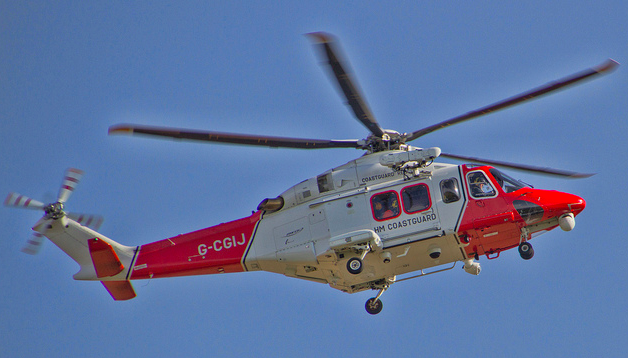What does privatised search and rescue and the end of military involvement really mean?
It has taken two successive governments, years of discussion and was halted by a bungled bid process in 2011, but a private contract to take over the UK’s search and rescue (SAR) service for at least the next ten years has been awarded to Bristow Group, the Texas based company that runs helicopter services for the oil and gas industry in the North Sea.
It will see the replacement of military involvement, a service dating back 70 years. This has caused considerable controversy, with sceptics wondering if the new private search and rescue service will continue to be as reliable.
The £1.6bn contract is to run SAR services for ten years from 2015 with 22 helicopters operating from Coastguard bases round the UK. It forms part of the UK’s international search and rescue obligations.
It will replace a service that has been a mixture of private Coastguard helicopters (from Shetland, Stornoway, Solent and Portland Coastguards) and the Royal Air Force and Royal Navy using their fleet of Sea King aircraft. But the ageing Sea Kings reach the end of their operational life in 2016 and the four different variants in use are becoming more difficult and expensive to maintain and operate.
The helicopters that Bristow will operate are a mixture of Sikorsky S-92s and Augusta Westland 189s. As an example, the Sikorsky S-92 helicopters are around 30 per cent faster than Sea Kings, capable of flying in more adverse conditions and staying on station for longer.
The new contract and privatisation has been mired in controversy, with opponents arguing that slimming down operating bases and replacing military search and rescue services will compromise the service and personnel training. That is not, however, the view of the Royal Yachting Association (RYA), which has been following proposals for change.
“We welcome the announcement on the search and rescue contract,” comments RYA cruising manager Stuart Carruthers. “This has been sorted out to avoid a huge gap in 2015/16 when the MoD [military] aircraft wouldn’t have been available because they were no longer going to be supported. We were looking at a black hole.”
Carruthers argues that the nub of the change is not, as critics have suggested, simply about cost-saving. “It is more complex than that. There are a lot of politics in here and we’re not the people to comment on that – it’s between goverment and the MoD to decide if the Services need an SAR role – but from our point of view the provision of new helicopters is a step forward.
“The Sea King is 40 years old, an old lady, that has been overtaken by technology. The modern helicopters are more capable: quicker, carry more people and can stay on station longer. This is what the experts believe is the best solution with the aircraft provided.”
But he admits: “It is a hugely emotive subject.”
The new aircraft fleet will have to service 11,000km of coastline and 3.6 million km2 of sea.
The Private Finance Initiative for the SAR service was set in motion by the previous government. This £6bn contract was for a 25-year term. But bidding was halted in 2011 when it was found that the preferred supplier, Soteria, had had access to commercially sensitive information. The new slimmed-down contract will run until 2025.




